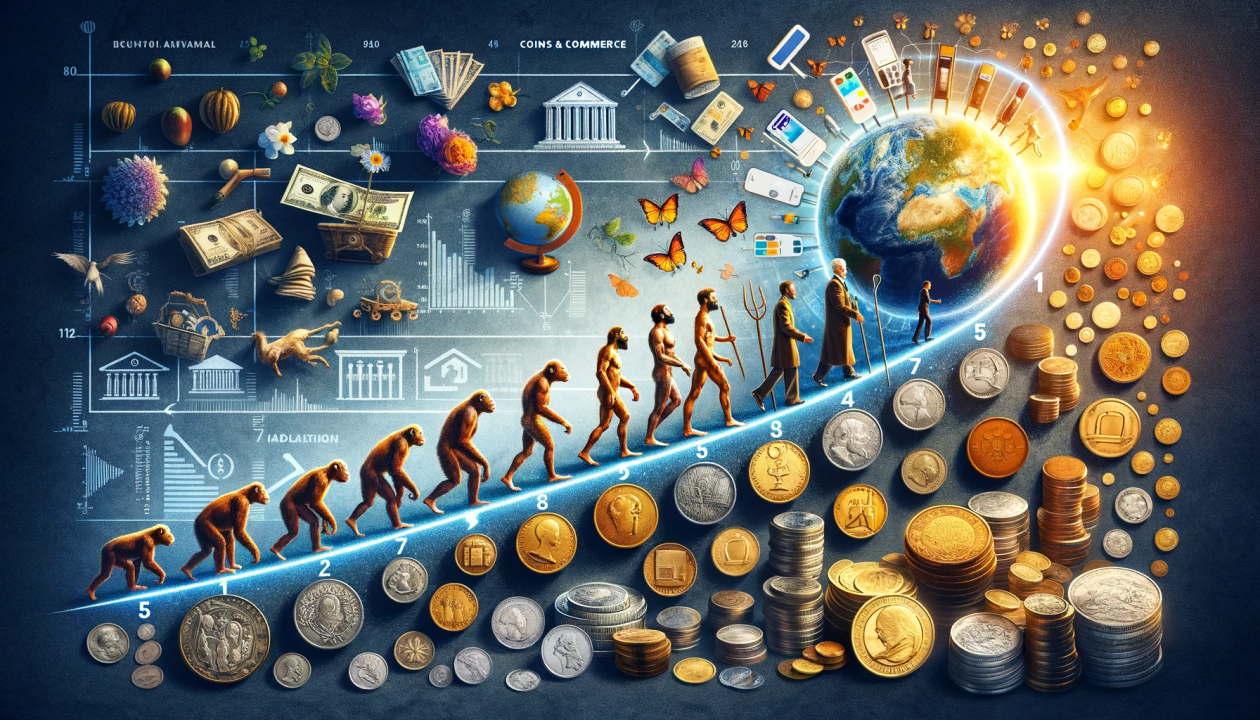
The financial sector is undergoing a rapid transformation, as cryptocurrencies are challenging conventional monetary systems and altering the global exchange of value. A critical question arises as digital assets continue to gain prominence: Will new tokens in the crypto space eventually supplant fiat currencies or even displace established cryptocurrencies like Bitcoin and Ethereum? Challenges to Fiat Money For decades, fiat ...

In the realm of global finance and geopolitics, cryptocurrency has transformed from a fringe digital endeavor to a central participant. A sophisticated power struggle is currently underway, as nations, corporations, and communities vie to utilize blockchain technology. This conflict has the potential to revolutionize the economic sway of the 21st century. The global crypto contest is not solely about technology; ...

Unprecedented transformation is imminent in the financial sector. For years, cryptocurrencies have expressed their intention to challenge conventional systems by providing decentralized, transparent, and accessible alternatives to banks and governments. However, mainstream adoption remains uncertain, despite the rapid expansion of Bitcoin, Ethereum, and other digital assets. This begs the intriguing question: Are we mere coins away from inciting a complete ...

For more than a decade, Bitcoin has been the dominant force in the cryptocurrency industry, becoming synonymous with decentralized finance and digital assets. Its market capitalization has surged to hundreds of billions of dollars as a result of its status as “digital gold” and as a safeguard against conventional financial risks. However, as governments investigate the launch of their own ...

From obscure projects launching in garage cellars to currencies seemingly achieving billions in market value overnight, the cryptocurrency world has witnessed some extraordinary stories. In recent years, the emergence of meme currencies has been one of the most unexpected phenomena. These digital tokens, which were inspired by internet quips and pop culture, have gained significant popularity and, for certain investors, ...

Blockchain and artificial intelligence (AI) are two of the most influential technologies that are influencing the future of finance. AI has automated complex decision-making, while blockchain has enabled decentralized, secure digital transactions. Taken individually, these technologies have already revolutionized industries. These forces are currently converging, which raises an intriguing question: could cryptocurrencies that are created or managed by AI surpass ...

Bitcoin was introduced in 2009, and since then, the cryptocurrency industry has undergone significant advancements. Digital currencies were introduced as a novel form of decentralized money during the initial phase, which is frequently referred to as Crypto 1.0. The possibilities were expanded by Crypto 2.0, which was driven by platforms such as Ethereum, through the use of smart contracts and ...

Bitcoin has maintained its status as the most influential and valuable cryptocurrency for an extended period. It established the foundation for the entire blockchain industry and was dubbed “digital gold” as the first decentralized digital currency. However, the cryptocurrency landscape is undergoing a rapid transformation, and a number of individuals are inquiring as to whether Bitcoin will continue to hold ...

Since the inception of Bitcoin, the cryptocurrency market has expanded exponentially, evolving from a niche fascination to a global financial phenomenon. The question that is on everyone’s mind as we anticipate the next decade is: which cryptocurrencies will become the market leaders? Despite the notoriously unpredictable nature of the crypto space, specific trends, technologies, and initiatives provide indications of who ...

The cryptocurrency landscape in 2035 will likely be a reflection of more than just technological advancement; it will reveal which digital assets have prevailed through the tumult of innovation, regulation, and market cycles to establish themselves as true pillars of the global economy. As the crypto space matures, certain coins will ascend to dominance, while others will contend for their ...